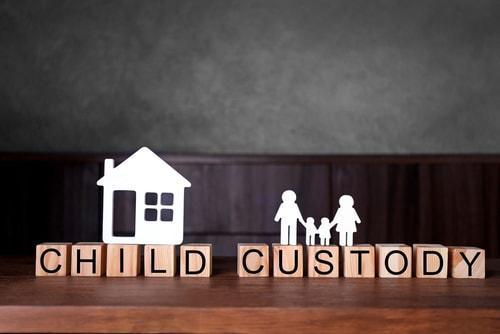Recent Blog Posts
Blending Families Post-Divorce
 Perhaps one of the most difficult and emotional parts of any divorce is when the the future and custody of children is involved. This can still weigh heavily even years after a divorce is final when parents enter into a new relationship and combine their children with those from another family whose parents are no longer married.
Perhaps one of the most difficult and emotional parts of any divorce is when the the future and custody of children is involved. This can still weigh heavily even years after a divorce is final when parents enter into a new relationship and combine their children with those from another family whose parents are no longer married.
Unlike Television
When two adults decide to enter into a relationship, especially one that may result in marriage, their children usually have little influence. However, getting married and starting a family that involves the blending of two, previously existing families, definitely comes with some pitfalls to navigate on the path to establishing a happy and healthy household.
- Couples must work to ensure that any children who only live with them part-time feel like a full member of the family during the time they are with them.
Understanding the Rules of Parent and Child Relocation
 Many things can trigger a move after a divorce - a new job, moving to be closer to family or even a new relationship. When a parent wants to relocate a child after a divorce, they must take certain steps to ensure that they are relocating the child legally and not in violation of any current parenting agreements.
Many things can trigger a move after a divorce - a new job, moving to be closer to family or even a new relationship. When a parent wants to relocate a child after a divorce, they must take certain steps to ensure that they are relocating the child legally and not in violation of any current parenting agreements.
What Is Considered Relocating?
According to Illinois law, you are considered to be relocating if you are moving more than 25 miles from the child’s original home if it is within Cook, DuPage, McHenry, Kane, Lake or Will counties or if the new home is out of state. The law also says that if the original home is not within the listed counties, a move is considered relocation if it is more than 50 miles from the child’s original home.
Advantages of Nesting Parenting Arrangements After Divorce
 Divorce is a giant change of pace in a family’s life. Parents know that divorce can be difficult for children to adapt to and can cause undue emotional distress. They work to minimize the effects of divorce on their children, which is how a fairly new parenting arrangement has come around. This arrangement is called “nesting,” which is a very child-centered approach to allocating parenting time.
What Is Nesting?
Nesting is a co-parenting arrangement where parents continue to share the family home and take turns living there to take care of the children. Rather than getting used to moving back and forth between two separate homes, the children reside full time in the family home that they are used to. The goal of nesting is to maintain a stable home for the children while the divorce is changing the aspects of the family’s life.
Can Nesting Work for You?
Because nesting involves high levels of cooperation and communication between the two parents, this type of arrangement usually only works with parents who are on good terms with each other. Minimal conflict is key for nesting to work--parents must be willing to put their children's’ well being ahead of their own. The family must also be able to provide some sort of other living arrangements for the parents when they are not at the family home--it can get expensive to sustain two living quarters, plus the family home.
Advantages of Nesting
Divorce is a giant change of pace in a family’s life. Parents know that divorce can be difficult for children to adapt to and can cause undue emotional distress. They work to minimize the effects of divorce on their children, which is how a fairly new parenting arrangement has come around. This arrangement is called “nesting,” which is a very child-centered approach to allocating parenting time.
What Is Nesting?
Nesting is a co-parenting arrangement where parents continue to share the family home and take turns living there to take care of the children. Rather than getting used to moving back and forth between two separate homes, the children reside full time in the family home that they are used to. The goal of nesting is to maintain a stable home for the children while the divorce is changing the aspects of the family’s life.
Can Nesting Work for You?
Because nesting involves high levels of cooperation and communication between the two parents, this type of arrangement usually only works with parents who are on good terms with each other. Minimal conflict is key for nesting to work--parents must be willing to put their children's’ well being ahead of their own. The family must also be able to provide some sort of other living arrangements for the parents when they are not at the family home--it can get expensive to sustain two living quarters, plus the family home.
Advantages of Nesting
There are many advantages of this alternative type of child custody arrangement. Advantages of nesting include:
Tips For Navigating Graduations for Co-Parents
 You have probably been thinking about this event since the day your child was born. High school graduation is a mark in a child’s life that symbolizes their path to adulthood. They might be going off to college and your life might be changing forever. What you may not have thought about was the fact that you are divorced now. If you have gone through a rather troublesome divorce, attending events like these can be stressful for all involved--but they do not have to be. Here are some tips on how to behave civilly during your child’s special day:
You have probably been thinking about this event since the day your child was born. High school graduation is a mark in a child’s life that symbolizes their path to adulthood. They might be going off to college and your life might be changing forever. What you may not have thought about was the fact that you are divorced now. If you have gone through a rather troublesome divorce, attending events like these can be stressful for all involved--but they do not have to be. Here are some tips on how to behave civilly during your child’s special day:
Plan Ahead
Oftentimes, events such as graduations limit the number of tickets that each family is allotted to attend the event. If this is the case, you should plan ahead and make sure that you and your spouse have an equal number of tickets to allow all of your family members to attend the event. If need be, you should try to find additional tickets if you or your spouse have more family members than tickets.
Understanding the Best Interest of the Child in Illinois
 When you are going through divorce proceedings, one of the many facets that you will come across is issues pertaining to your children. In Illinois, physical child custody and visitation are called parenting time and legal custody is called parenting responsibility. When making decisions about these things, the court is always taking into consideration the best interests of the child. The majority of parents are concerned with their child’s best interests, but their views of what is best for the child can sometimes be clouded by everything else surrounding the divorce. Understanding what the court considers best for the child can help you anticipate what decisions the court will make with your case.
What Is the “Best Interest” of the Child?
In legal terms, the best interest of the child is used in most cases involving decisions made about children. This means that the judge presiding over the case will base his or her decision about parenting time and responsibilities on a number of factors to best suit the child’s individual needs. All states have some sort of standards set in place to determine what is in the child’s best interests.
Determining Factors in Illinois
When you are going through divorce proceedings, one of the many facets that you will come across is issues pertaining to your children. In Illinois, physical child custody and visitation are called parenting time and legal custody is called parenting responsibility. When making decisions about these things, the court is always taking into consideration the best interests of the child. The majority of parents are concerned with their child’s best interests, but their views of what is best for the child can sometimes be clouded by everything else surrounding the divorce. Understanding what the court considers best for the child can help you anticipate what decisions the court will make with your case.
What Is the “Best Interest” of the Child?
In legal terms, the best interest of the child is used in most cases involving decisions made about children. This means that the judge presiding over the case will base his or her decision about parenting time and responsibilities on a number of factors to best suit the child’s individual needs. All states have some sort of standards set in place to determine what is in the child’s best interests.
Determining Factors in Illinois
The Illinois Juvenile Court Act of 1987 set into place specific factors judges take into consideration when a “best interest” determination is required. The child’s age and developmental needs are taken into consideration, along with:
Child Representative in Illinois Divorce Proceedings
 Divorce is not a walk in the park--some divorce cases can become extremely nasty pretty quickly. Unfortunately, in cases where there is a lot of fighting between spouses, the children often get lost in the shuffle. The parents are so preoccupied with fighting with each other that the best interests of their children often get pushed to the bottom of the pile, even if it is unintentional. Illinois courts recognize that divorce can wreak havoc on the emotions of those going through the divorce process, so they have put measures into place to make sure that the best interests of the children involved in these divorce proceedings are kept at the forefront.
Divorce is not a walk in the park--some divorce cases can become extremely nasty pretty quickly. Unfortunately, in cases where there is a lot of fighting between spouses, the children often get lost in the shuffle. The parents are so preoccupied with fighting with each other that the best interests of their children often get pushed to the bottom of the pile, even if it is unintentional. Illinois courts recognize that divorce can wreak havoc on the emotions of those going through the divorce process, so they have put measures into place to make sure that the best interests of the children involved in these divorce proceedings are kept at the forefront.
When Is a Child Representative Used?
The Illinois Marriage and Dissolution of Marriage Act states that any proceeding that deals with issues of support, visitation, custody, allocation of parental responsibilities, education, parentage, property interest or general welfare of a dependent child warrants a reason for the court to appoint a representative of some kind for the child involved in the hearing. There are three types of representation that is recognized in Illinois:
Parental Responsibility Proceedings: Interviews, Evaluations, and Investigations
 For some people, divorce may be a peaceful process. They may already know who will get the house, who will keep the dog and where their child will live. And if they do not already know, they may be able to quickly agree on those things. For the majority of divorcing couples, the decisions are not that easy and deciding parental responsibilities can become a long and combative process. When this happens, Illinois courts may decide to take things into their own hands and conduct interviews, evaluations, and investigations as to what the best parenting arrangement would be for the child. The Illinois Marriage and Dissolution of Marriage Act allows the court to require evaluations if the parents cannot come to an agreement on their own.
Court Interviews
Because the determination of parental responsibilities directly affects the child, it is important to understand his or her wishes in regard to the situation. Sometimes, the child does not have the chance to voice their wishes and in this case, the court will conduct an interview with the child to try to determine what they would prefer. According to the Act, counsel will be present during the interview and the interview will be recorded by a court reporter.
Professional Evaluation
For some people, divorce may be a peaceful process. They may already know who will get the house, who will keep the dog and where their child will live. And if they do not already know, they may be able to quickly agree on those things. For the majority of divorcing couples, the decisions are not that easy and deciding parental responsibilities can become a long and combative process. When this happens, Illinois courts may decide to take things into their own hands and conduct interviews, evaluations, and investigations as to what the best parenting arrangement would be for the child. The Illinois Marriage and Dissolution of Marriage Act allows the court to require evaluations if the parents cannot come to an agreement on their own.
Court Interviews
Because the determination of parental responsibilities directly affects the child, it is important to understand his or her wishes in regard to the situation. Sometimes, the child does not have the chance to voice their wishes and in this case, the court will conduct an interview with the child to try to determine what they would prefer. According to the Act, counsel will be present during the interview and the interview will be recorded by a court reporter.
Professional Evaluation
In addition to interviews, the court may either appoint a professional to conduct an evaluation or if a parent requests an evaluation, will allow either parent to choose a professional for the job. The professional’s job is to interview the parents and the child, observe the child with each parent, review court documents pertaining to the case, contact other professionals such as teachers, daycare workers, therapists and doctors and conduct psychological testing if needed. The professional’s report to the court must contain:
Creating a Comprehensive Parenting Plan in an Illinois Divorce
 In addition to dividing property, savings accounts, and retirement funds, many divorcing couples also have children that they must make arrangements for. Divorce is hard on everyone in the family, but it is arguably the hardest on the children. By creating a comprehensive parenting plan that encompasses as many issues pertaining to the children as possible, you can help eliminate some of the trepidation and mystery that a divorce brings.
In addition to dividing property, savings accounts, and retirement funds, many divorcing couples also have children that they must make arrangements for. Divorce is hard on everyone in the family, but it is arguably the hardest on the children. By creating a comprehensive parenting plan that encompasses as many issues pertaining to the children as possible, you can help eliminate some of the trepidation and mystery that a divorce brings.
Parenting Plan Is Required by Law
Under Illinois law, all couples who are divorcing and have children together must submit a parenting plan that covers a certain set of issues. These parenting plans help the court decide what the proper course of action is when awarding parenting responsibility and parenting time. If a couple does not have a comprehensive parenting plan to submit to the courts, they will be required to attend mediation to come up with a parenting plan that is agreeable to both parents.
Back-to-School Tips for Divorced Parents
 As summer comes to a close, children are returning back to school, some of which are excited to begin learning new things, while others are depressed that summer vacation is over. While some children are anxious to begin the new school year, some parents are as well. New school years can bring about issues for some divorced parents, such as purchasing school supplies, managing permission forms, communicating with teachers, and parent-teacher conferences. Back-to-school time can be daunting for divorced parents, which is why it can be beneficial to keep these tips in mind when dealing with issues that may arise throughout the school year:
As summer comes to a close, children are returning back to school, some of which are excited to begin learning new things, while others are depressed that summer vacation is over. While some children are anxious to begin the new school year, some parents are as well. New school years can bring about issues for some divorced parents, such as purchasing school supplies, managing permission forms, communicating with teachers, and parent-teacher conferences. Back-to-school time can be daunting for divorced parents, which is why it can be beneficial to keep these tips in mind when dealing with issues that may arise throughout the school year:
Split the Cost of School Supplies
With the start of a new school year comes the need for new school supplies. With a long list of pencils, crayons, paper, folders and scissors that the teacher sends home, plus new school clothes, uniforms, shoes, a backpack and lunchbox, it is safe to say you will probably be spending a small fortune on these items. If you and your spouse do not have a prior arrangement worked out, it is a good idea to split the cost of these supplies, so one of you is not bearing the brunt of it.
Modifying Parenting Plans for Parental and Child Relocation
 There could be many reasons why you would want to petition to move out of the area with your child after a divorce - you could be moving for your job, to be closer to family or maybe you just want a change of scenery. Whatever the reason is, as long as you have the majority of parenting time or equal parenting time allocated to you, you can petition to relocate with your child. Typically, relocating with your child requires a change in your existing parenting plan. Though the process to make the change in your parenting plan can be stressful and time-consuming, it is not impossible.
There could be many reasons why you would want to petition to move out of the area with your child after a divorce - you could be moving for your job, to be closer to family or maybe you just want a change of scenery. Whatever the reason is, as long as you have the majority of parenting time or equal parenting time allocated to you, you can petition to relocate with your child. Typically, relocating with your child requires a change in your existing parenting plan. Though the process to make the change in your parenting plan can be stressful and time-consuming, it is not impossible.
Steps You Must Take
In Illinois, there typically must be a significant change in circumstances before you can change your parenting plan. A relocation constitutes a significant change. If you plan on relocating with your child, you are required to submit a written notice of relocation to your child’s other parent within 60 days of relocating. If you do not provide notice, the court can use that as a factor in considering whether or not the relocation is in good faith.









